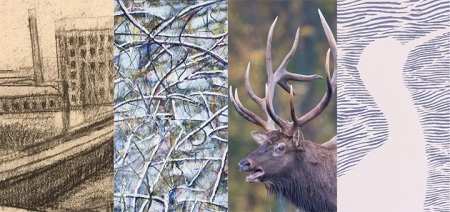Outdoor Chenango: Bug Off
Published:
April 21st, 2021
By:
Eric Davis
 Outdoor Chenango Columnist Eric Davis
Outdoor Chenango Columnist Eric Davis
Some outdoor activities have begun to ramp up as spring has started to show itself while others are on the horizon. Turkey, walleye and northern pike season all begin in the next few weeks.
If you plan to get outside for any of these, there is nothing more frustrating than facing an onslaught of biting insects.
Whether it is black flies or mosquitoes, they can ruin your outing and make you run for home. However, there are some things you can do to help keep your outings from being shut down by these nuisances.
The first option to help alleviate the issue is to pretreat your clothing and equipment. This is my preferred way to combat ticks. Spray your clothing with a 0.5% permethrin treatment and let it dry for 24 hours before wearing it.
This treatment even lasts for a few trips through the laundry before needing to be reapplied. This treatment also repels mosquitoes.
The next option for treatment would be a repellant actively applied while afield. This can be a chemical treatment such as DEET or a natural treatment such as essential oils. This treatment option can work in some situations but might not be ideal in others. These treatments, especially natural ones, can be greasy. A greasy feeling on your hands can make handling equipment difficult especially fishing rods and reels. It also can transfer onto your lures and/or bait, which could be detected by fish making them not bite. Additionally, these treatments do wear off and need to be re-applied every so often. When working in the Adirondacks in 2013, I endured the black fly swarms that are famous up there. The main problem that I had was keeping them from biting my hands as I was trying to write notes into my field journal. After trying out a handful of products, I found a product that worked at a gas station. It was a thick gel that had citronella in it.
A second option for in the field treatment would come in the form of heated chemicals, such as candles and torches. This can be a good option when fishing from a boat that is not moving fast, as the chemical that is heated makes a zone of chemical around the heat source. Another popular form of this is the Thermacell. This is a small butane powered device that heats up a chemically treated pad to make a zone of repellant. It gets great reviews for repelling black flies from spring bear hunters in Canada. I have used one for a couple of years and am happy with it. The only thing to remember with these treatments is that it takes time for the zone of repellant to become established and heavy winds can make the repellant useless.
After spending time afield, particularly if you went through tall grass or low brush, you should check yourself for ticks. They will head towards pockets on the body. Look at armpits, the groin, behind your knees, and along your hairline. If you do find a tick that is attached, it is recommended that you remove it by grabbing it as far forward on the body with tweezers and pulling it straight up. Do not smother the tick with oils or Vaseline. This will cause the tick to regurgitate as it tries to detach, which is when it can pass the bacteria that causes Lyme disease.
If you are not able to fully keep the other biting insects at bay, you may find yourself itching and scratching irritated bites. Excessive scratching at bites can lead to infection. To battle this, you can use antihistamine creams applied directly to the bite area or antihistamine pills. Black fly bites can swell so ice can be useful to combat this.
Whether going afield to hunt, fish, shoot, or just to go for a hike, hopefully this article can help you be able to stay in out longer by dealing with the biting insects that can cause you to stop early.
Author: Eric Davis - More From This Author
Comments








